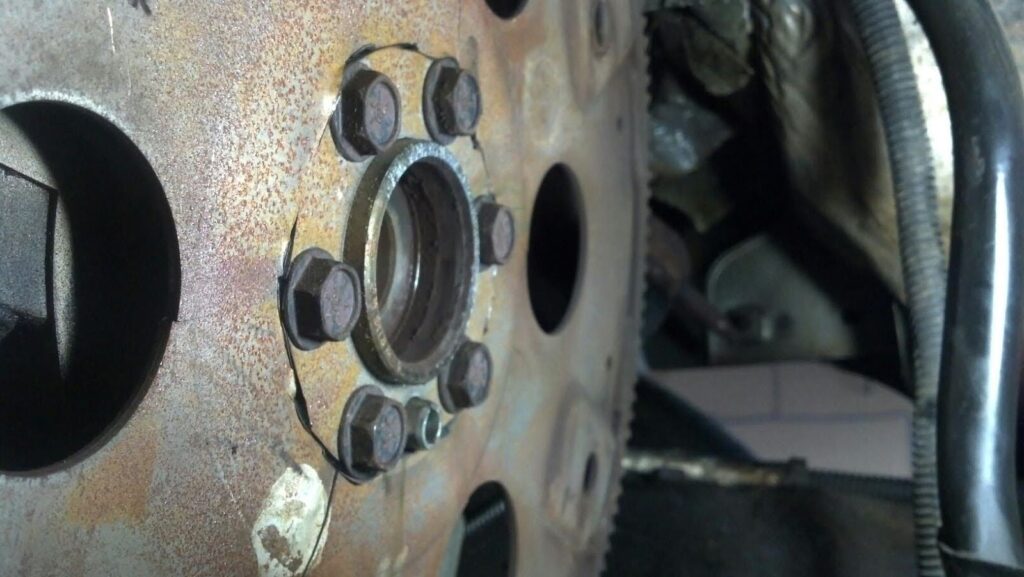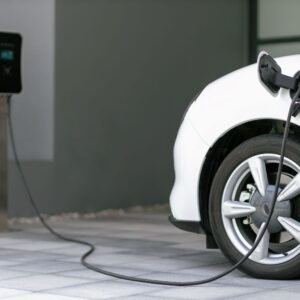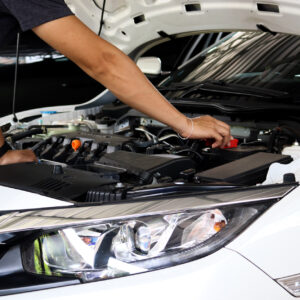The shafts, valves, pistons, and belts that are in the engine and connected to it can make noise. Aside from an engine’s uniform rumble, many modern vehicles have fuel injectors that produce clicking noises, though you don’t usually hear them on newer platforms.
Another type of ticking or clicking can occur when the engine is cold. An engine clicking noise after a cold start can occur because:
- When the engine is hot, the oil drains away from the upper parts of the oil gallery on older engines with loose tolerances, leaving the lifters without oil. This doesn’t happen on engines that are in good shape with little wear.
- When the engine is first started, the oil is cold (particularly in winter) and may take a moment or two to make it through the oil gallery up to the lifters, and you’ll hear them clicking as the camshaft operates the valves.
That said, an engine can develop an unusual ticking noise that could mean it has an issue that needs to be resolved. Here are some of the most possible causes for an engine that has an unusual ticking noise:
Low Oil Pressure or Level
Low oil pressure or levels can deprive engine components like valves and lifters of oil. When this happens, the metal-on-metal contact can create tapping or ticking or rattling noises.
Engines with timing chains that use an oil pressure-driven tensioner will have timing chain noise if the oil pressure drops below about 25 psi. This noise might be worse right after a cold start. But since cold oil is thicker than hot oil, you may begin to notice the noises more when the engine is hot than when it’s first started.
Exhaust Manifold Leak
The exhaust manifold is the piping that facilitates your engine’s exhaust gases after they exit the engine. If the exhaust manifold is cracked or leaking, it’ll create a loud hissing or tapping sound. This sound typically comes from underneath your engine.
If a cast iron manifold has a slight crack, it will make ticking noises until the manifold heats up and seals the crack and then the noise will return on the next cold start.
Thinner steel exhaust manifolds or catalytic converters on front wheel drive cars that are part of the exhaust manifold can crack and cause noises. Their heat shields will often hide the source of the noise.
Cracked Flywheel/Flex Plate

Worn-out or Misaligned Valvetrain Components
Misaligned cam lifters or valves can create a metallic rattling or tapping noise. This sound can be similar to an engine’s fuel injection system.
Connecting Rod Knock or Cracked Piston
Piston connecting rods are the components underneath the pistons that connect them to the crankshaft. When these rods wear out, they can make noise, which means a rod hits the crankshaft as the rod changes direction. Note, however, that this can be more of a knock than a ticking noise.
This is a serious issue because the connecting rod is a critical engine component. If ignored, the faulty rod can damage other internal engine components and require an expensive rebuild.
Loose Spark Plugs
A loose spark plug will allow compression to hiss past the plug threads on some vehicles and cause ticking noises.
Faulty Pulleys
The engine uses the serpentine belt to power components like the A/C compressor, power steering motor, and alternator. Over time, the bearings in the pulleys can wear out and create a ticking noise. Alternatively, the components powered by the serpentine belt can also have issues and make noise.
Here’s a video of finding a pulley noise:
Damaged or Loose Engine Fan
The engine fan or radiator fan can make a ticking noise if its plastic components get damaged or if the fan has nuts that have gotten loose. Sometimes simply tightening some bolts will solve the issue. But a damaged fan blade or motor will require a replacement.
Here’s a video showing a loose engine fan:
How To Fix Ticking Noises in Your Engine
The first step in any repair is identifying the main cause of the issue. This can be quite challenging since identifying where the source of the sound can be tricky.
That said, certain issues tend to have a characteristic sound. A problematic valvetrain or an engine that lacks oil tends to sound more metallic than a leaking exhaust manifold, which makes more of a whooshing noise. You can research what each issue sounds like by searching for videos on the internet. Alternatively, you can consult with a mechanic. Once you know the problematic part, these are usually the fixes for these issues:
Oil Change
Replacing the oil and oil filter is the solution if your ticking noise is caused by low or contaminated oil. Sometimes, your engine might need special additives, since these can fix issues like engine noise caused by a faulty valve lifter. Owners should also check oil pressure since some problematic engines will show high or low oil pressure.
Valve Realignment or Replacement
Inspecting the camshaft, pushrods, and rocker arms for proper alignment is a common fix for ticking noises from an engine’s valvetrain. This inspection checks the parts’ clearances and adjusts the screws in the rocker arms.
Replacing Faulty Components
Replace worn-out or damaged components like exhaust manifolds, pulleys, connecting rods, and spark plugs. Replacing spark plugs is an easy DIY process since it only involves a few tools. However, replacing other components like exhaust manifolds and connecting rods will involve disassembling engine components. If you aren’t confident in your DIY skills, it might be best to leave the task to a trusted mechanic.
Remember that some ticking sound in your engine when idling and accelerating is normal. However, a problem can create a different noise. You should be familiar with the sound of your engine so that you’ll be able to sense if a part has failed.
Where to Get Replacement Auto Parts for Your Car
Exhaust manifolds, pulleys, connecting rods, and spark plugs are some of the parts you can replace to remedy the ticking noise in your engine. When dealing with issues like this, it’s best to get high-quality auto parts to ensure they last. Thankfully, CarParts.com has you covered.
Browsing our catalog is easy thanks to our vehicle selector and search filters. Find exactly what you need and check out securely in a matter of minutes. Shop from our website or download our mobile app to complete purchases in just a few taps!
Here at CarParts.com, you’ll never go over budget while shopping for your automotive needs. We offer a price match guarantee to help you get the best deal online.
Our distribution centers are equipped with the latest technology to ensure that orders are processed and shipped out as quickly as possible. Order now and expect your package in as fast as two business days!
Any information provided on this Website is for informational purposes only and is not intended to replace consultation with a professional mechanic. The accuracy and timeliness of the information may change from the time of publication.

































